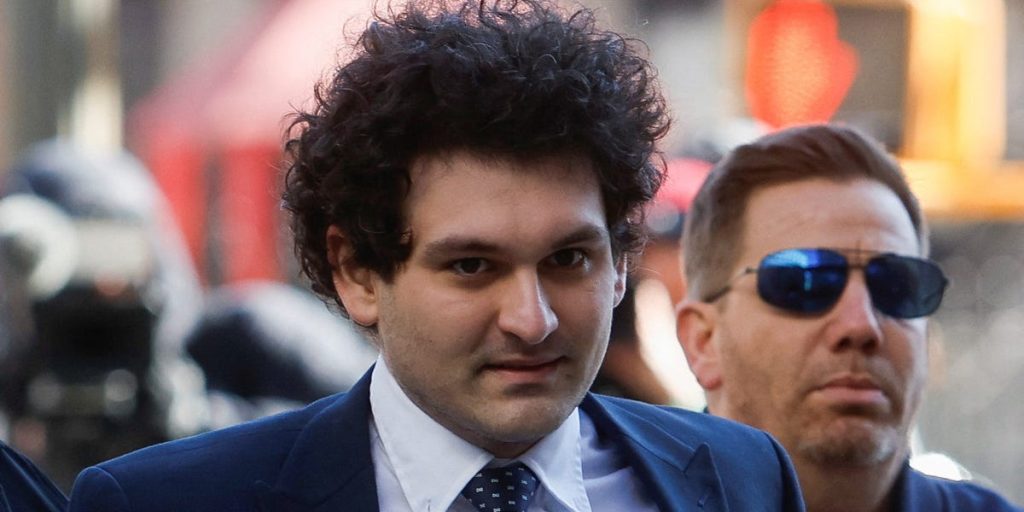- Prosecutors said they’re struggling to analyze a laptop for their case against Sam Bankman-Fried.
- It has so much data that it’s taking weeks to just extract information, they said on Thursday.
- Sam Bankman-Fried pleaded not guilty to federal prosecutors’ new criminal charges against him.
Prosecutors have run into a roadblock while trying to analyze reams of data in their criminal case against Sam Bankman-Fried.
In a hearing in Manhattan federal court Thursday morning, Assistant US Attorney Nicholas Roos said the FBI was struggling to extract data from a laptop they obtained from the FTX founder.
It takes weeks to extract just Slack messages from the laptop, Roos said, and longer still for the rest of the data on the device. Because of its size, he said, the device needs to be taken apart “virtually” and extracted in pieces for prosecutors to analyze.
Because of the device’s size, the Justice Department has not even been able to begin its privilege review to determine what kind of data prosecutors are even permitted to use in its criminal case against Bankman-Fried.
The FBI, who had a representative in attendance during the hearing, did not immediately respond to Insider’s request for comment ahead of publication.
Mark Cohen, an attorney representing Bankman-Fried, told US District Judge Lewis Kaplan that he was “concerned” about how prosecutors would handle the contents of the laptop, and may revisit the issue with the judge.
“That relates to a cooperating witness, who may be a witness at trial,” Cohen said.
Prosecutors have already produced around 6 million pages’ worth of discovery material to Bankman-Fried’s legal team, Roos said at the hearing.
Bankman-Fried was in court Thursday to enter a plea on new charges unsealed this week, in which prosecutors had accused him of trying to bribe Chinese officials with more than $40 million in cryptocurrency in 2021. He pleaded not guilty to all of them.
Prosecutors previously hit Bankman-Fried with a fleshed-out indictment in February, outlining their story of how the former crypto billionaire negotiated his status atop a crypto empire. He leaned on executives at FTX to help direct political donations across both sides of the aisle, prosecutors alleged, saying that he did so in order to sway potential crypto industry regulation in his favor.
In the latest 13-count indictment, prosecutors added a count for conspiracy to violate the anti-bribery provisions of the Foreign Corrupt Practices Act, alleging that Bankman-Fried had engaged in the scheme to try to free up trading accounts of his other company, Alameda Research, that had been frozen in China.
—Jacob Shamsian ⚖️ (@JayShams) March 30, 2023
On Thursday, Cohen said in court he would challenge the government’s right to bring additional charges after Bankman-Fried had already been extradited to the US.
“As Mr. Cohen said in court, we will be challenging the new charges when motions are filed,” a representative for Bankman-Fried told Insider.
The charges that Bankman-Fried faces carry maximum penalties totaling more than a 100 years. Kaplan has scheduled his trial to take place in October.
If Bankman-Fried is convicted, any actual sentence will ultimately be Kaplan’s decision. Federal judges look to sentencing guidelines articulated by a pre-sentence department, part of the US probation office that works for the federal court.
Federal prosecutors have developed their case quickly since FTX filed for Chapter 11 in November, unveiling a short indictment in December, and bringing more charges as they pursued the investigation. They have also secured plea deals with FTX co-founder Gary Wang, Alameda’s former CEO Caroline Ellison, and former FTX chief engineer Nishad Singh.
Read the full article here




